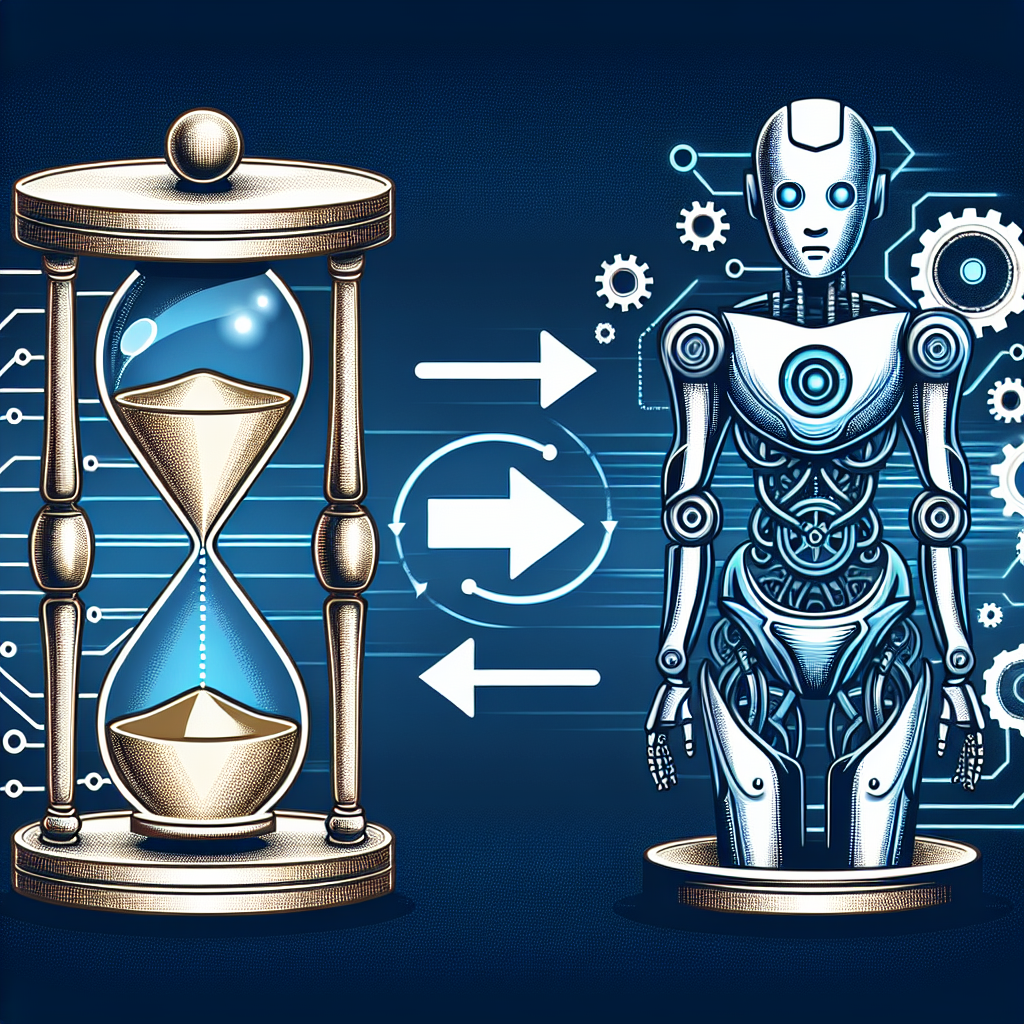The Evolution of Project Management with AI
Project management is a critical function in any organization, ensuring that tasks are completed on time, within budget, and to the required quality standards. Over the years, project management has evolved significantly, with the introduction of new technologies and methodologies to streamline processes and improve efficiency. One of the most significant advancements in recent years has been the integration of artificial intelligence (AI) into project management practices.
AI has the potential to revolutionize the way projects are managed, offering new opportunities to automate tasks, analyze data, and make more informed decisions. In this article, we will explore the evolution of project management with AI, looking at how it is changing the way projects are planned, executed, and monitored.
The Role of AI in Project Management
AI refers to the simulation of human intelligence processes by machines, particularly computer systems. In the context of project management, AI can be used to automate routine tasks, analyze data to identify patterns and trends, and make predictions based on historical information. This can help project managers make more informed decisions, allocate resources more effectively, and optimize project schedules.
One of the key benefits of AI in project management is its ability to process vast amounts of data quickly and accurately. This can help project managers identify potential risks and opportunities, track progress against key milestones, and make adjustments to the project plan in real-time. AI-powered project management tools can also help teams collaborate more effectively, by providing a centralized platform for communication, file sharing, and task management.
AI can also be used to improve project forecasting and planning. By analyzing historical project data, AI algorithms can identify patterns and trends that can help project managers predict future outcomes more accurately. This can help organizations better allocate resources, set realistic project timelines, and improve overall project success rates.
The Evolution of Project Management with AI
The integration of AI into project management practices has been a gradual process, with organizations adopting AI-powered tools and technologies to enhance their project management capabilities. Some of the key ways in which AI is transforming project management include:
1. Task Automation: AI-powered project management tools can automate routine tasks such as scheduling meetings, assigning tasks, and generating reports. This can help project managers save time and focus on more strategic activities.
2. Data Analysis: AI algorithms can analyze vast amounts of project data to identify patterns, trends, and potential risks. This can help project managers make more informed decisions and improve project outcomes.
3. Predictive Analytics: AI can be used to predict future project outcomes based on historical data. This can help project managers identify potential risks and opportunities, and make adjustments to the project plan to improve overall success rates.
4. Resource Optimization: AI can help project managers optimize resource allocation, ensuring that the right resources are assigned to the right tasks at the right time. This can help organizations save time and money, and improve project efficiency.
5. Collaboration: AI-powered project management tools can facilitate collaboration among team members, providing a centralized platform for communication, file sharing, and task management. This can help teams work more effectively together, regardless of their location.
6. Real-time Monitoring: AI can monitor project progress in real-time, providing project managers with up-to-date information on key milestones, risks, and issues. This can help project managers make timely decisions and keep projects on track.
FAQs
Q: What are some examples of AI-powered project management tools?
A: Some examples of AI-powered project management tools include Asana, Trello, and Monday.com. These tools use AI algorithms to automate routine tasks, analyze data, and improve project collaboration.
Q: How can AI help project managers make more informed decisions?
A: AI can analyze vast amounts of project data to identify patterns and trends that can help project managers make more informed decisions. This can help project managers predict future outcomes, identify potential risks, and optimize project schedules.
Q: Is AI replacing human project managers?
A: While AI can automate routine tasks and improve project efficiency, it is not replacing human project managers. AI-powered tools are designed to augment human decision-making, providing project managers with the information they need to make better decisions and optimize project outcomes.
Q: What are some of the challenges of implementing AI in project management?
A: Some of the challenges of implementing AI in project management include data privacy concerns, the need for specialized skills and training, and resistance to change from team members. Organizations must address these challenges to successfully integrate AI into their project management practices.
In conclusion, the evolution of project management with AI is transforming the way projects are planned, executed, and monitored. By leveraging AI-powered tools and technologies, organizations can automate routine tasks, analyze data more effectively, and make more informed decisions. While there are challenges to implementing AI in project management, the benefits of AI are clear, with organizations that embrace AI gaining a competitive advantage in today’s fast-paced business environment.

